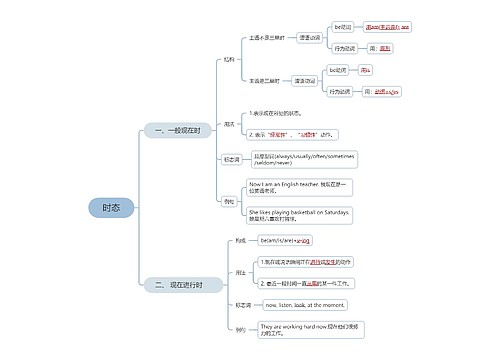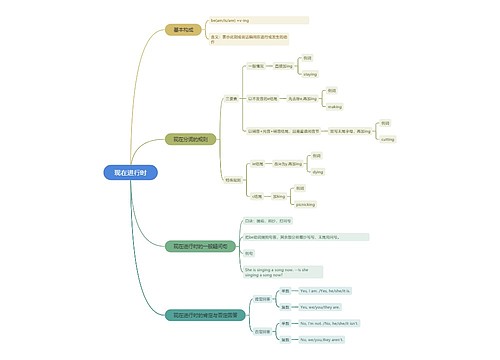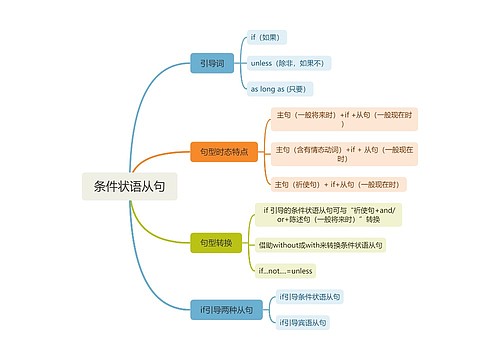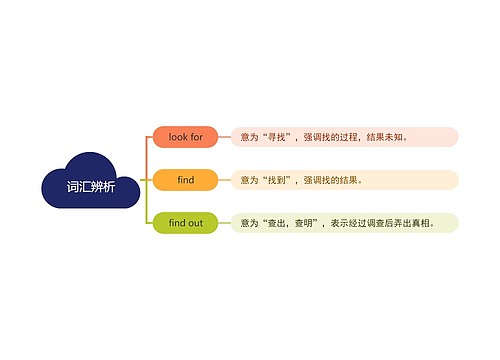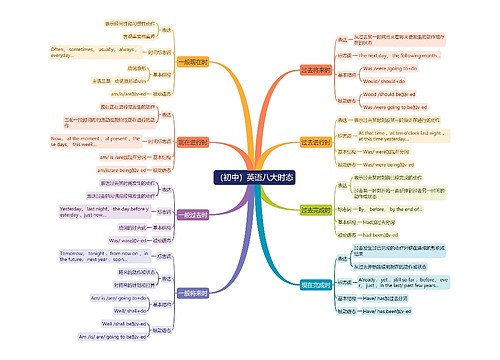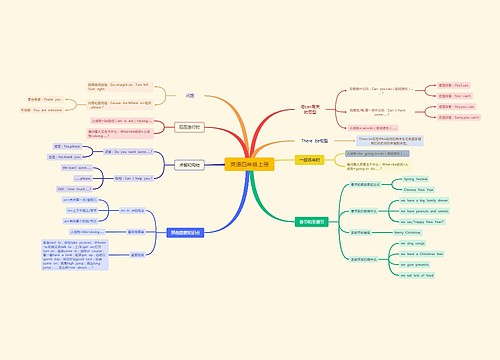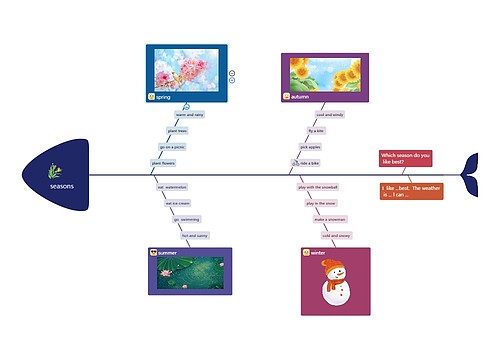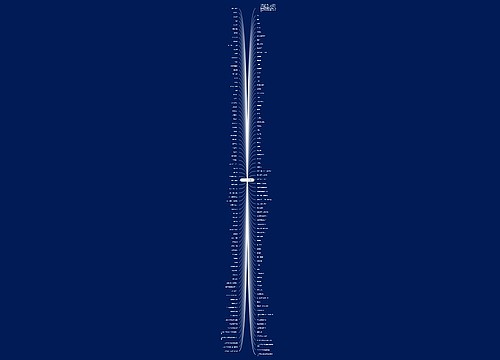
三级英语阅读习题思维导图
谎话最甜
2023-04-04

三级英语阅读习题
英语阅读习题
对于英语,我们需要把陌生的单词片语和句型语法不断的熟悉和熟练,使之成为我们的一种习惯,把它变成我们的第二天性。因此,重复重复再重复,熟练熟练再熟练,是学会英语的不二法门。
树图思维导图提供《三级英语阅读习题》在线思维导图免费制作,点击“编辑”按钮,可对《三级英语阅读习题》进行在线思维导图编辑,本思维导图属于思维导图模板主题,文件编号是:3a33b341420f366dcf77da7fb68cf86d
思维导图大纲
相关思维导图模版
三级英语阅读习题思维导图模板大纲
对于英语,我们需要把陌生的单词片语和句型语法不断的熟悉和熟练,使之成为我们的一种习惯,把它变成我们的第二天性。因此,重复重复再重复,熟练熟练再熟练,是学会英语的不二法门。下面是树图网给大家整理的一些三级英语阅读习题,希望对大家有所帮助。
英语三级试题:阅读理解
I heard many parents complaining that their teenage children are rebelling. I wish it were so. At your age you ought to be growing away from your parents. You should be learning to stand on your own two feet. But take a good look at the present rebellion. It seems that teenagers are taking the same way of showing that they disagree with their parents. Instead of striking out boldly on their own, most of them are clutching (紧握) at one another's hands for reassurance.
They claim they want to dress as they please. But they all wear the same clothes. They set off in new directions in music. But somehow they all end up huddled (聚在一起) round listening to the same record. Their reason for thinking or acting in thus-and-such a way is that the crowd is doing it. They have come out of their cocoon (蚕茧) into a larger_cocoon.
It has become harder and harder for a teenager to stand up against the popularity wave and to go his or her own way. Industry has firmly carved out a teenage market. These days every teenager can learn from the advertisements what a teenager should have and be. And many of today's parents have come to award high marks for the popularity of their children. All this adds up to a great barrier for the teenager who wants to find his or her own path.
But the barrier is worth climbing over. The path is worth following. You may want to listen to classical music instead of going to a party. You may want to collect rocks when everyone else is collecting records. You may have some thoughts that you don't care to share at once with your classmates. Well, go to it. Find yourself. Be yourself. Popularity will come—with the people who respect you for who you are. That is the only kind of popularity that really counts.
1.In this passage, the author wants to tell ________.
A.teenagers to try to pursue their real selves
B.readers to try to be popular with people around
C.parents to try to control and guide their children
D.people to try to understand and respect each other
2.The author disapproves of rebelling teenagers ________.
A.growing away from their parents
B.following the popularity trend
C.walking a new way on their own
D.turning to their friends for help
3.The phrase "larger cocoon" at the end of the second paragraph refers to ________.
A.the distractive and variable society
B.the dazzling music world
C.the parental care and love
D.the popularity wave in the society
4.What does the author think of advertisements?
A.Convincing.
B.Instructive.
C.Influential.
D.Authoritative.
5.According to the author, what might happen when a teenager stands up against the popularity wave and follows his/her own path?
A.He/She falls behind the time.
B.He/She loses good friends.
C.He/She faces all kinds of criticism.
D.He/She gains valuable popularity.
大学英语三级考试阅读理解模拟题
One of the most commonly-held beliefs regarding health and nutrition in the UK has been found to be untrue, according to a new scientific study.
For many years British people have been __1__ to eat at least 'five- a-day' – that is five items of fruit or vegetables every day__2__ improve their health and __3__ the likelihood of illness, __4__ cancer.
The recommendation was first __5__in 1990 by the World Health Organization which said that the 'five-a-day' diet could __6__ cancer and other chronic diseases.
__7__ the advice has been a mainstay (支柱) of public health policies in many developed countries, such as the UK, __8__ the population eat a high__9__ of junk food.
Many health campaigns have __10__ the advice, and indeed much food packaging in Britain states how the __11__ will constitute part of your five- a-day.
_12___, a study of 500,000 Europeans from 10 different countries refutes (驳斥) the commonly-believed __13__ that up to 50% of cancers could be prevented by _14___ the public's consumption of fruit and vegetables.
Instead the study, which is _15__ by researchers from a well-respected New Yorkmedical school, __16__ that only 2.5% of cancers could be averted by eating more fruit and vegetables.
It seems that the __17__ to avoiding cancers is to have an overall healthy lifestyle __18__ includes not smoking or drinking a lot of alcohol, taking exercise and avoiding obesity (肥胖症).
But medical charities have spoken out to __19__ people that diet is an important factor in staying healthy, and that even a 2.5% reduction __20__ cancers is still a positive step.
A. compelled
B. recommended
C. proposed
D. required
A. in order to
B. such that
C. as to
D. so that
A. decline
B. undermine
C. destroy
D. reduce
A. in essence
B. in total
C. in particular
D. in depth
A. put across
B. put down
C. put forward
D. put up
A. prevent
B. check
C. escape
D. avoid
A. For the time
B. At present
C. Little by little
D. Since then
A. where
B. when
C. that
D. which
A. division
B. proportion
C. component
D. section
A. mentioned
B. declared
C. promoted
D. reflected
A. materials
B. contents
C. supplies
D. resources
A. Similarly
B. Though
C. Therefore
D. However
英语考试《三级》阅读理解练习
"Family" is of course an elastic word. And in different countries it has different meanings. Butwhen British people say that their society is based on family life, they are thinking of "family"in itsnarrow, peculiarly European sense of mother, father and children living together in their own houseas an economic and social unit. Thus, every British marriage indicates the beginning of a new and in-dependent family--hence the tremendous importance of marriage in British life. For both man andwoman, marriage means leaving one’s parents and starting one’s own life. The man’s first duty willthen be to his wife, and the wife’s to her husband. He will be entirely responsible for her financialsupport, and she for the running of the new home. Their children will be their common responsibilityand their alone. Neither the wife’s parents nor the husband’s, nor their brothers or sisters, aunts oruncles, have any right to interfere with them-they are their own masters.
Readers of novels likeJane Austen’s Pride and Prejudice will know that in former times, marriage among wealthy families were arranged by the girl’s parents, that is, it was the "parents' duty tofind a suitable husband for their daughter, preferably a rich one, and by skillful encouragement tolead him eventually to ask their permission to marry her. Until that time, the girl was protected andmaintained in the parents' home, and the financial relief of getting rid of her could be seen in theirgiving the newly married pair a sum of money called a dowry (嫁妆). It is very different today.Most girls of today get a job when they leave school and become financially independent before theirmarriage. This has had two results. A girl chooses her own husband, and she gets no dowry. Everycoin has two sides; independence for girls is no exception. But it may be a good thing for all of thegirls, as their social status are much higher and they are no longer the subordinate(部下,下级) oftheir parents and husbands.
46. What does the author mean by "Family is of course an elastic word"?
[A]Different families have different ways of life.
[B]Different definitions could be given to the word.
[C]Different nations have different families.
[D]Different times produce different families.
47. For an English family, the husband’s duty is________
[A]supporting the family while the wife is working out
[B]defending the family while the wife is running the home
[C]providing financial support while the wife is running the home
[D]independent while his wife is also independent
48. Everything is decided in a family________
[A]by the couple
[B]with the help of their parents
[C]by brothers and sisters
[D]with the help of aunts and uncles
49. What is TRUE conceming the book Pride and Prejudice?
[A]It is the best book on marriage.
[B]It is a handbook on marriage.
[C]It gives some idea of English social life in the past.
[D]It provides a lot of information of former-time wealthy families.
50. With regard to marriage in Britain, present-day girls differ from former-time girls in________
[A]the right family
[B]more parental support
[C]choosing husbands
[D]social position
三级英语阅读相关文章:
★ 小学三级英语上册教学工作总结2021
★ 小学三级英语下册教学工作总结2021
★ 上海中考加分政策归纳
★ 参加成考后还可以报考四六级么
★ 小学英语教学期中总结2021
★ 2021年英语专八是什么水平
★ 小学英语课改教学工作总结2021
★ 2021面试个人简历范本最新五篇
★ 宁德中考志愿信息整理
★ 初一下册英语教案范文5篇2021
查看更多
相似思维导图模版
首页
我的文件
我的团队
个人中心

